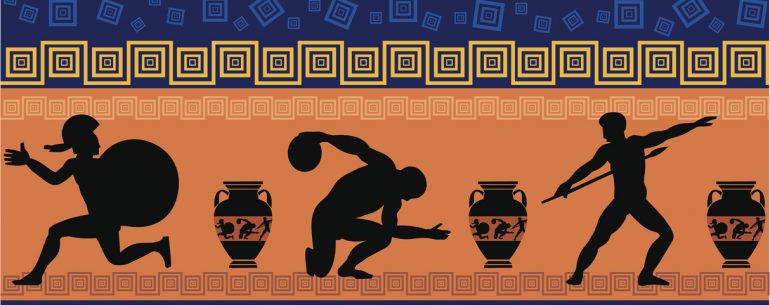In 2015, I quit my job to travel the world. This gave me the freedom to see how much I could learn in a year (I had planned to return to the corporate world).
Indeed, the greatest value of time wealth, for me, has been the freedom to follow my curiosities, wherever they might lead me. The most surprising thing I’ve learned in my travels? Just how differently people from other parts of the world think.
It may seem obvious that someone from Asia would think differently than an American. After all, they’ve been exposed to different parts of the world and taught different things.
What’s not so obvious is that human groups have different ways of perceiving and reasoning—not everyone has the same cognitive processes. This goes way back. The Greeks and Chinese of 2500 years ago had very different philosophies and conceptions of themselves, which still influence our thinking today. In fact, an estimated 1 billion of us in the West inherited our intellectualism from the Greeks. Over 2 billion in the East owe their way of thinking to the Chinese.
Curious Georgios
In Ancient Greece, leisure meant the freedom to pursue knowledge. Our English word “school” is derived from the Greek “scholé,” meaning leisure.
Aristotle believed curiosity was the uniquely defining trait of a human being. Merchants of Athens enthusiastically sent their kids to school to indulge their curiosities. Since Western education doesn’t encourage curiosity, former merchant Man Overseas will consider homeschooling.
We Westerners are the heirs to the Ancient Greeks’ formal logic, which plays a large role in problem-solving. We believe the behavior of objects (plants, animals, humans) can be understood in a straightforward way. Categorizing them helps us to know which rules to apply to the object.
Greeks became obsessed with linear if-then, either-or logic orientations. This helped to fuel an incredible sense of personal agency—they believed they were in charge of their own lives and the creator of their own destiny. Never before, in The Age of Antiquity, had anyone believed they had the capacity to influence their own thoughts and behavior in pursuit of excellence.
Thus, if you’ve set goals to live a bigger life in the 2020s, thank the Greeks. Their sense of identity correlated with a strong desire to achieve goals they’d set for themselves. They sought happiness by exercising their powers in pursuit of excellence.
Individualism fueled a tradition of debate. As Homer made clear in the 8th century, a man is defined almost equally by his ability to debate as his prowess on the battlefield.
He who is only an athlete is too crude, too vulgar, too much a savage. He who is a scholar only is too soft, too effeminate. The ideal citizen is the scholar athlete, the man of thought and the man of action. – Plato
A Harmonious Life
Chinese philosophy was shaped by Confucianism, Taoism and Buddhism, all of which emphasized harmony over abstract speculation. The Ancient Chinese didn’t have agency—they had harmony. They viewed themselves as part of a collective: the clan, the village, and especially the family.
The individual was not a person with a unique identity. Rather he was the sum total of roles he lived in relation to others. They prided themselves on self-control, which meant minimal friction with others in the village or family.
Whereas Greeks believed happiness could be found by developing your unique talents and achieving personal goals, East Asians thought happiness was a life shared within a harmonious social network. Instead of artifacts depicting athletes and warriors like the Greeks, Chinese porcelain shows scenes of family life in the countryside.
When I visit rural parts of Southeast Asia, the first question I’m asked is, “How many kids do you have?” It’s the East’s version of “What do you do?”
Who Knows What’s Good or Bad?
Most East Asians know the story of the old farmer who lost his only horse. The horse provided a living for the old man, so when the horse ran away, neighbors came over to commiserate with him.
Old farmer refused sympathy. Instead, old man said, “Who knows what’s good or bad?”
Days later the horse returned with another horse. Friends came by to celebrate his good fortune. But old farmer said, “Who knows what’s good or bad?”
A few days later, old man’s son tried to ride the new horse and was thrown off, breaking his leg. Friends and neighbors came to share the sadness, but old man wouldn’t have it, saying, “Who knows what’s good or bad?”
A war broke out a few weeks later. The army came to the farm to conscript all able-bodied men to fight a war against a neighboring province. But old man’s son wasn’t fit to serve due to a broken leg —he was spared.
The story goes on, but you get it—the Eastern stance toward life is that it’s constantly changing and filled with contradictions. To fully appreciate an event or set of circumstances, you must understand its full context. What seems to be true may not be—it might in fact be just the opposite.
Consider Communist-Era Premier Zhou En-lai. When asked whether the French Revolution had been beneficial, he famously said, “It’s too early to tell.”
Confucius (551 to 479 B.C.) was more philosopher than religious leader. His main concern was relations among people.
Often called the religion of common sense, Confucianism urges adherents to be excessive in nothing and to assume that between two propositions, and between two contending individuals, truth exists on both sides. Confucianists are less concerned with finding the truth than they are finding the Tao (the Way) to conduct yourself in the world.
Food for Thought
In Confucianism, the individual worked for the entire family, not for self-interest reasons. Any thought that didn’t give rise to action was deemed fruitless.
Begs the question: Does a thought also become fruitless if it’s shared once but gets no response? I remember facing a convergence of Eastern & Western influence the night before my wedding.
Someone said to me, “Are you ready to stop living for yourself?” As any interviewer knows, questions reveal the quality of one’s thoughts better than any answer could.
This particular question was almost Eastern-inspired—except it lacked Tao and had high risk of disrupting harmony. So I expressed a gentle “f*ck you” and sparked a debate that would make Homer proud.
Just kidding. My own Eastern influences prevailed. But it’s fun to think about how I might’ve turned a harmonious gathering into a big fat Greek wedding.
Further reading:
- The Geography of Thought by Richard Nisbett
- Guns, Germs and Steel: The Fates of Human Societies by Jared Diamond
- Sapiens by Yuval Harrari



